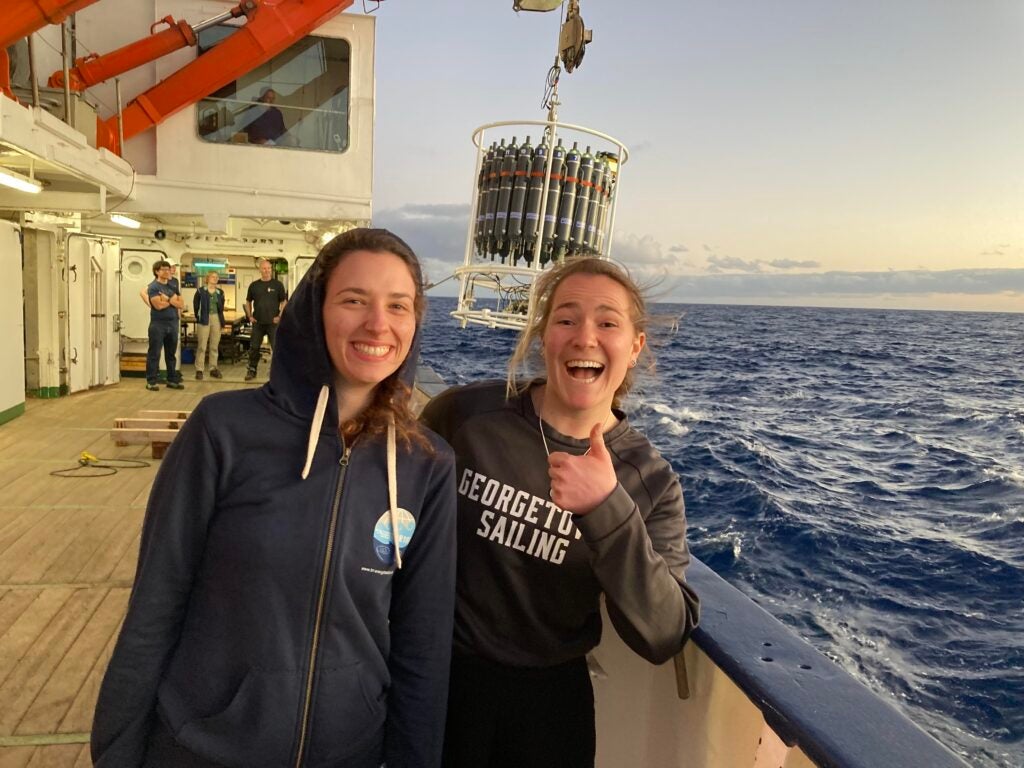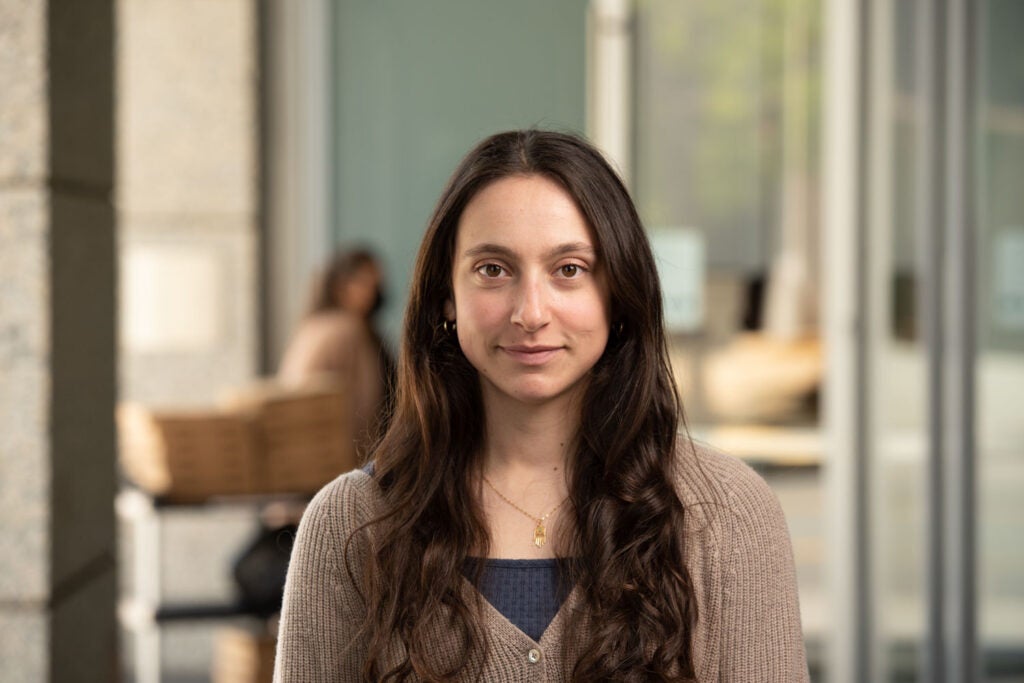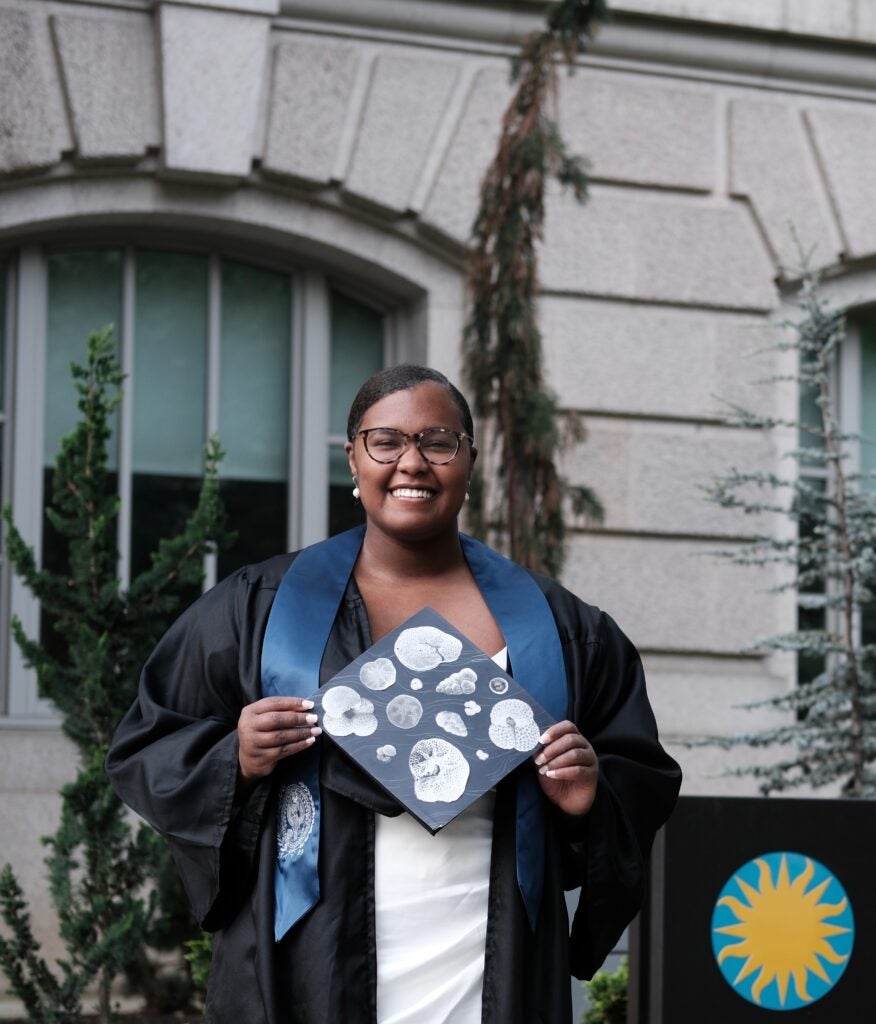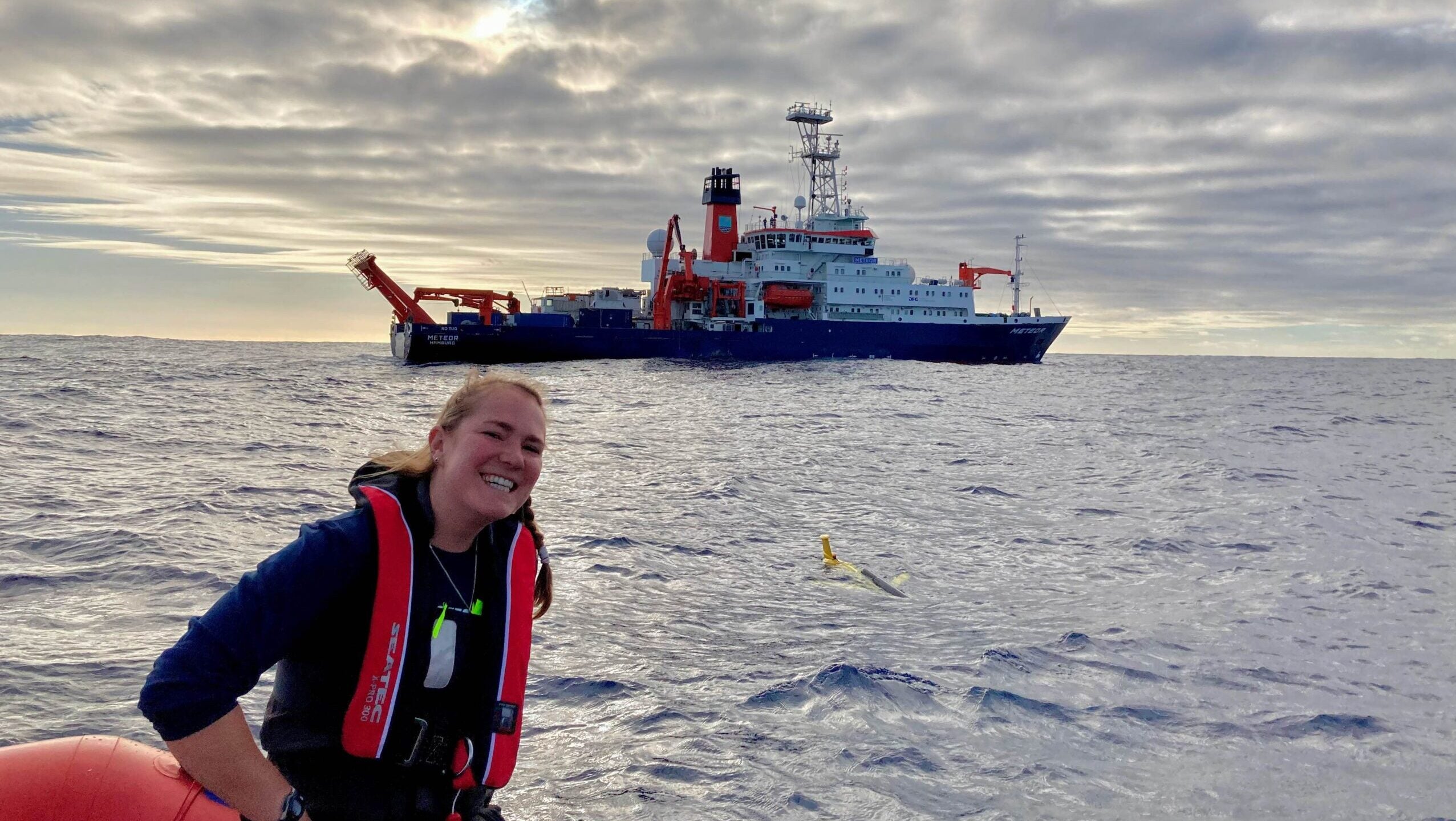Five College of Arts & Sciences Alumnae Awarded Prestigious NSF Fellowship
This year, five alumnae of the College of Arts & Sciences were awarded fellowships through the National Science Foundation’s Graduate Research Fellowship Program.
The program, which is the oldest graduate fellowship of its kind, supports outstanding graduate students pursuing research in the disciplines of science, technology, engineering and mathematics.
The five alumnae who were awarded fellowships are Victoria Boatwright (C’22), Chloe Fishman (C’20), Olivia Gadson (C’23), Virginia Glick (C’18) and Catherine E. McCarthy (C’22).
Victoria Boatwright

Victoria Boatwright (C’22) in Germany’s North Sea, where she has spent the summer studying the impacts of offshore wind farms.
Boatwright, who studied biological physics at Georgetown, will begin pursuing her Ph.D. in the fall at the Scripps Institution of Oceanography at UC San Diego.
For Boatwright, who competed on Georgetown’s sailing team, studying and working in the field of oceanography is the perfect marriage of personal interests and academic inquiry.
“When I first became involved in oceanographic research at a NOAA lab through the Hollings Scholarship, I really fell in love with the field and the research,” said Boatwright. “It’s been amazing to have my real-life experiences of currents and winds on the water align with oceanographic theory and the research that I’m doing.”
Boatwright’s interest was first piqued after learning about the Navier-Stokes equation, which describes the movement of viscous fluids, in a physics class with Patrick Johnson, an associate teaching professor in the Department of Physics.
After graduating from Georgetown, Boatwright traveled to Germany on a Fulbright Scholarship to study the impact of offshore wind farms in the North Sea.
“My goal is to understand the physical mechanisms that influence biological processes and ecosystem function,” explained Boatwright.
Boatwright’s research has applicability for a range of industries and society writ large.
“I think studying the ocean is integral to facing climate change,” said Boatwright. “There are so many opportunities to harness the ocean for combating climate impacts in addition to understanding how the ocean is currently mediating climate disasters in a way that could break down if we continue business as usual.”
Chloe Fishman

Fishman, who majored in biology and minored in science, technology and international affairs, is beginning a Ph.D. program in bioscience at Rockefeller University in the fall.
While on the Hilltop, Fishman worked in the Johnson Biosignatures Lab, which aims to identify signs of life on other planets that may exist in environments vastly different from anything on Earth.
“Through my work studying microbial survival in the face of harsh conditions, I became curious about how microbes overcome antibiotics,” said Fishman. “I hope to conduct research that will inform solutions to the global antibiotic resistance crisis.”
The GRFP will empower Fishman to continue the exemplary research that she began at Georgetown.
“I’m extremely honored and excited to enter into the Graduate Research Fellowships Program,” said Fishman. “I’m grateful to the National Science Foundation for supporting my studies and my pursuit of impactful science.”
Olivia Gadson

Gadson, who majored in biology and minored in history, is heading to Yale University to pursue her Ph.D. in earth and planetary science.
“I’m thrilled to continue research in paleoclimatology and geochemistry,” said Gadson. “I’ll study oxygen isotopes on fossil foraminifera, microorganisms with carbonate shells.”
Foraminifera are single-cell organisms whose abundant fossil record provides an invaluable gateway into Earth’s history.
“Since being introduced to foraminifera through a high school program, I’ve become fascinated by their beauty and the premise that such tiny organisms can give us a great deal of insight into Earth’s past environments,” said Gadson.
While at Georgetown, Gadson has pursued research opportunities on the Hilltop and beyond, working in the Johnson Biosignatures Lab and the paleobiology department of the Smithsonian National Museum of Natural History.
For Gadson, the GRFP is a dream come true.
“It is an incredible privilege and honor to become a part of the program,” said Gadson. “I’m grateful to have had wonderful reviewers on my application, in addition to phenomenal mentors and professors who supported me thus far.”
-by Hayden Frye (C’17)
